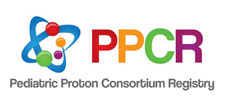Proton Therapy for Childhood Cancer
A cancer diagnosis may be one of the most difficult challenges a person will face. This is particularly true for young patients and their families. Texas Center for Proton Therapy is uniquely positioned to treat children with cancer and support their caregivers throughout their journey.
Download Fact Sheet
Since young bodies are still developing, there are several benefits of proton therapy for children with cancer.
- Proton therapy delivers a highly targeted dosage of radiation directly to the tumor while sparing damage to healthy, growing tissue and vital organs.
- Proton treatment is also non-invasive and has fewer side effects, allowing young patients to maintain their quality of life both during treatment and later as they age.
- Children diagnosed with cancer can benefit from being treated at centers like Texas Center for Proton Therapy, which specialize in pediatric oncology and use protocols developed for children, have specialized pediatric equipment, pediatric and surgical sub-specialists, and have clinical trials specifically for children.
Every child has different needs, and many factors are considered to determine the best treatment option, including the cancer type, stage of cancer, previous cancer treatments, and medical history.
Christian’s parents were devastated when doctors discovered he had a malignant brain tumor. When his treatment plan included radiation, they chose Texas Center for Proton Therapy to reduce radiation exposure to 12-year-old Christian’s body.
Dr. Victor Mangona, radiation oncologist on staff at Texas Center for Proton Therapy, discusses proton therapy as a treatment option for children undergoing cancer care.
Designed with Children in Mind
The physicians at Texas Center for Proton Therapy specialize in pediatric oncology and understand that any kind of medical treatment can be new, unknown, or even worrisome for children diagnosed with cancer. Pediatric patients and their families are connected with a child life specialist, an expert in child development. From nurses to radiation oncologists, the entire center is staffed with young patients in mind.
Waiting on appointments and cancers treatment can be difficult for children and their families. To give pediatric patients a distraction from their cancers, children can spend time in the Sunrise Room – an activity room and learning center designed just for them. The weekly activities in the Sunrise Room give both children with cancer and their caregivers an opportunity to connect with others during their stay for treatments. The Texas Center for Proton Therapy staff also works with families and schools to ensure pediatric patients can stay on top of their schoolwork during extended stays for cancer treatment.
The Pediatric Proton Consortium Registry (PPCR)
 Ongoing research leads to innovations that advance cancer treatments. Texas Center for Proton Therapy is actively involved in proton therapy research, including participating in the Pediatric Proton Consortium Registry (PPCR). This multi-institutional prospective registry’s primary aim is to expedite quality outcomes research in pediatric patients treated with proton radiotherapy. The PPCR is unique in its scope and depth and is the most comprehensive multi-institutional, radiation-based pediatric patient registry in existence.
Ongoing research leads to innovations that advance cancer treatments. Texas Center for Proton Therapy is actively involved in proton therapy research, including participating in the Pediatric Proton Consortium Registry (PPCR). This multi-institutional prospective registry’s primary aim is to expedite quality outcomes research in pediatric patients treated with proton radiotherapy. The PPCR is unique in its scope and depth and is the most comprehensive multi-institutional, radiation-based pediatric patient registry in existence.
About Childhood Cancer
Childhood cancers are rare, accounting for less than 1 percent of all cancer diagnoses. However, childhood cancers remain the most common cause of disease-related deaths among children outside the newborn period. Common types of childhood cancer include brain and spine tumors, chordoma, craniopharyngioma, ependymoma, Ewing sarcoma, germinoma & other germ cell tumors, lymhpoma, medulloblastoma, neuroblastoma, rhabdomyosarcoma, and sarcomas.
Childhood Cancer Statistics
- Approximately 10,500 U.S. children under age 15 are expected to be diagnosed with cancer in 2021. About 1,190 deaths of children under age 15 are anticipated.
- In Texas, more than 1,800 children under age 20 are diagnosed with cancer and almost 200 children die annually.
- Leukemias (28 percent) and brain/central nervous system cancers (26 percent) make up more than half of childhood cancers.
- The five-year survival rate now exceeds 80 percent, which has increased significantly in the last few decades due to treatment advances. The survival rate for the most common childhood cancer, acute lymphoblastic leukemia, has improved dramatically to 91 percent. Several other types of childhood cancer, including pediatric kidney tumors and most forms of lymphoma, now have five-year survival rates approaching or greater than 90 percent.
A large brain tumor left a six-year-old girl unable to walk or talk. After her brain tumor resection and proton therapy - an ultra-precise form of radiation - at Texas Center for Proton Therapy, she is talking, doing arts and crafts, and singing again. Caitlynne wrapped up her final proton treatment with big smiles and a celebration.
Childhood Cancer Symptoms and Signs
Cancers in children may be difficult to recognize, as symptoms are often similar to those caused by common illnesses or injuries. Parents should watch for unusual signs that persist and consult a physician with any concerns.
- An unusual lump or mass
- Unusual swelling
- Unexplained paleness
- Lack of energy
- Easy bruising
- Persistent pain in one area of the body
- Limping
- Unexplained fever
- A prolonged illness
- Frequent headaches, often with vomiting
- Sudden eye or vision changes
- Unexplained weight loss
- Unexplained bleeding or rash
The origin of most childhood cancers is unknown and cannot be prevented. A small number of environmental factors, such as exposure to radiation, may increase childhood cancer risk. Children with genetic syndromes like Down syndrome face an increased risk for developing leukemia. In a small number of cases, inherited genes can be linked to an increased risk for some forms of cancer in children. Physicians may recommend close monitoring.